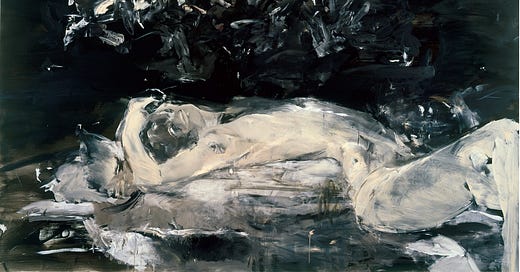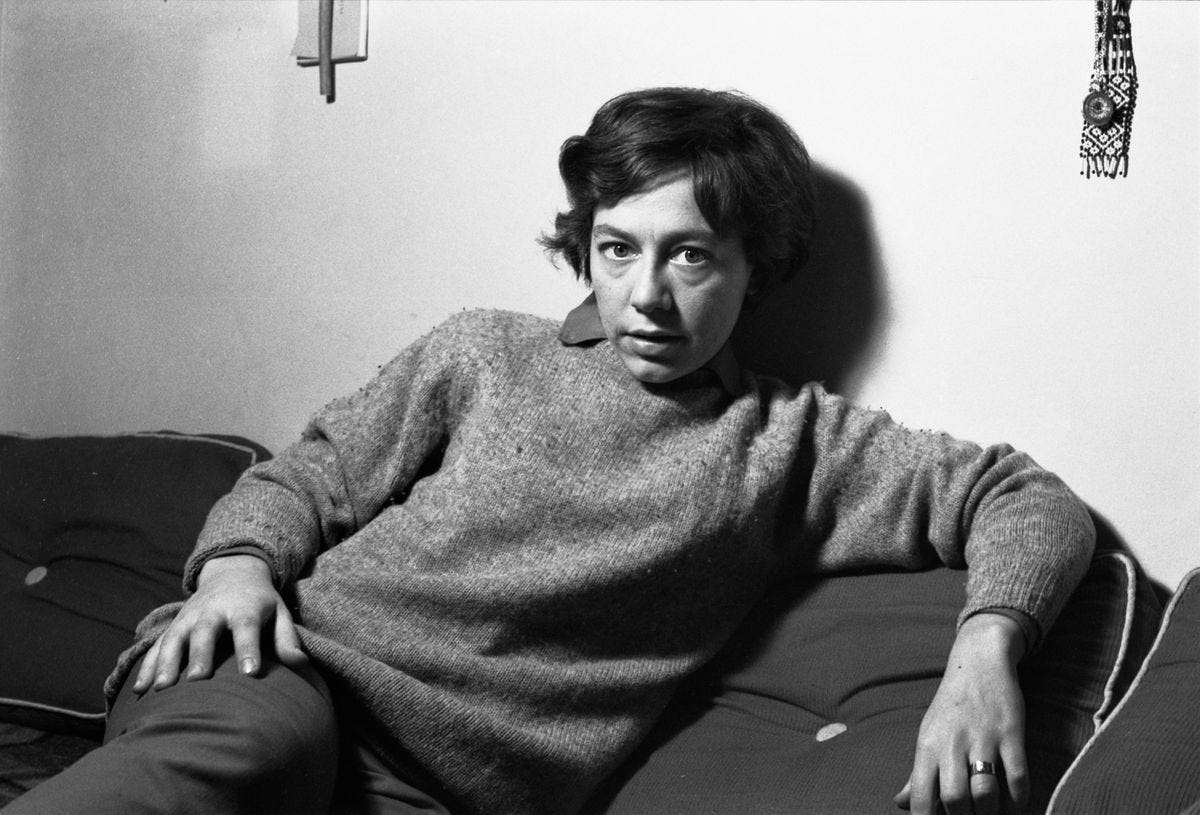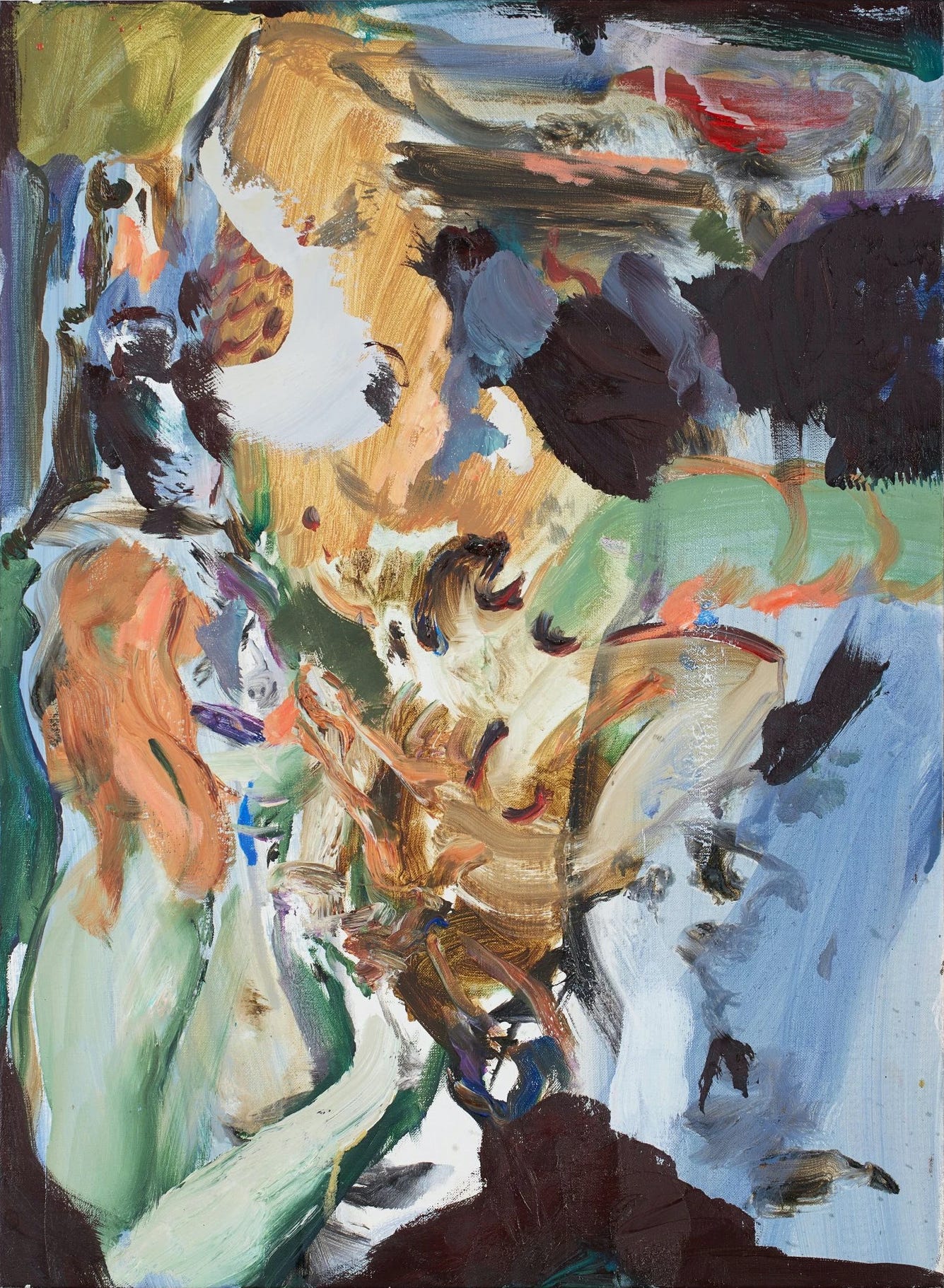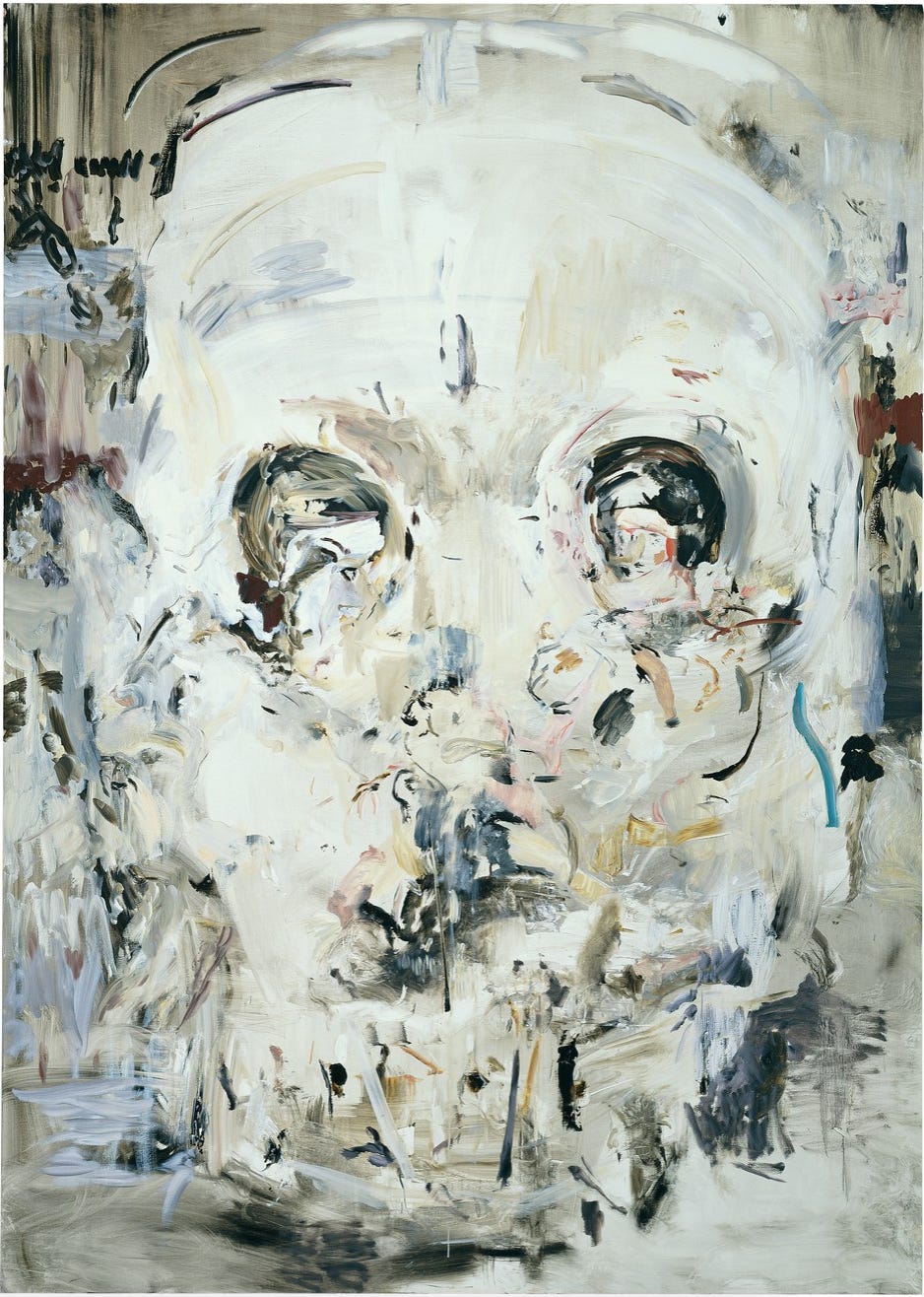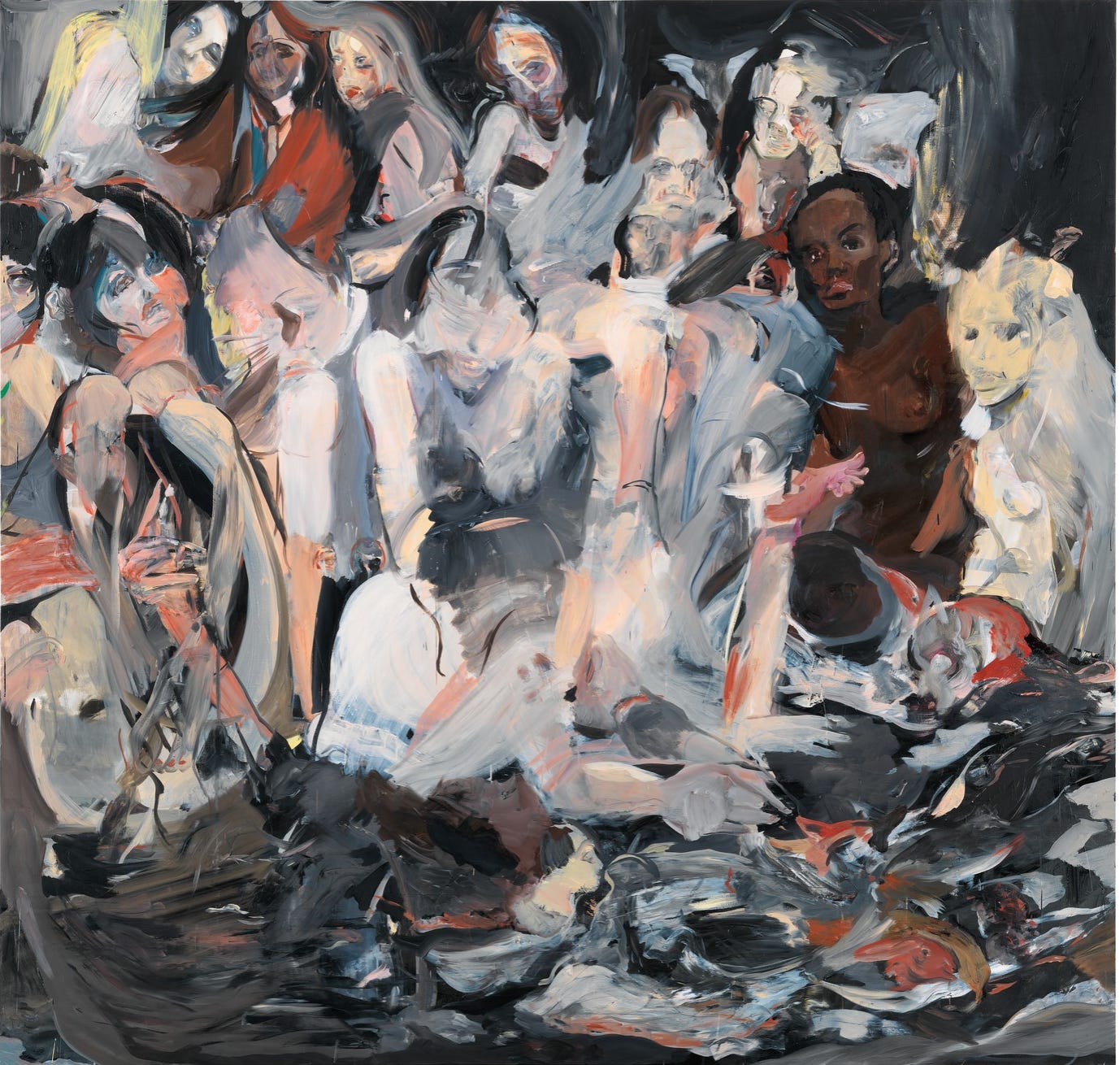Today: Alejandra Pizarnik’s poetry, painting and a new exhibition from Cecily Brown, lamentation singing by Fatima Al Qadiri.
READ: Extracting the Stone of Madness by Alejandra Pizarnik
This collection of poems by Alejandra Pizarnik, an Argentine poet, is some of the best I’ve read in a while. Per the book jacket, “she was drawn to ‘the suffering of Baudelaire, the suicide of Nerval, the premature silence of Rimbaud, the mysterious and fleeting presence of Lautréamont,’ as well as to the ‘unparalleled intensity’ of Artaud’s ‘physical and moral suffering.’”
It’s an intense, dark, and stunning collection of poetry.
Some of the lines I underlined, that stayed with me:
“The light, the forbidden wine, the vertigo. Who is it you write for? The ruins of an abandoned temple. If only celebration were possible. A mournful vision, splintered, of a garden of broken statues. Your bones ache on the brink of morning. You split open.” — Alejandra Pizarnik, “Extracting the Stone of Madness”
“To write is to rummage through a tumult of burnt bodies, for the arm bone that corresponds to the leg bone.” — Alejandra Pizarnik, “Extracting the Stone of Madness”
“A texture of light that a hand could sink into, like the loose earth that is covering you, my father with your blue eyes, just settled in your new hushed place.” — Alejandra Pizarnik, “The Song for the Reclining Figure”
“The darkening brilliance of dreams that drowned. Painful water. Too late for the dream, too late for the white horses, too late for leaving with a melody. The melody beat in my heart and I grieved the loss of my only belonging. Someone saw me crying in the dream and I explained (as much as possible) with simple words (as much as possible), with good and secure words (as much as possible). I recomposed my self and pulled her out of her lovely delirium, I tamed her for the sakes of those who feared I’d die in their home.” — Alejandra Pizarnik, “Extracting the Stone of Madness”
“You carry yourself off, you overtake yourself. Only you know this jarring rhythm. Now for gathering your remains: you collect them one by one, and the great tedium, where to leave them.” — Alejandra Pizarnik, “Extracting the Stone of Madness”
“All night long you abandon me slowly like water falling slowly.” — Alejandra Pizarnik, “Sous La Nuit”
“I have begged so much/from the depths of the depths/of my writing./To fuck and to die have no adjectives.” — Alejandra Pizarnik, “Only the Nights”
“I never found a soulmate. No one was a dream. They left me with open dreams, with my central wound wide open, with my heart torn.” — Alejandra Pizarnik, “Memories of the Little House of Song”
WATCH: Cecily Brown’s new exhibition at The Met, Death and the Maid
Cecily Brown, Black Painting No. 1, 2002
I love Cecily Brown’s work. Are You Weary, Are You Languid? is her first piece I saw, and it remains one of my favourite paintings. Her work skims the edges of figuration, retains the dynamism of abstract painting without veering remotely close to Zombie Formalism.
Her dealer’s characterization of her work actually sells it well:
“Brown makes paintings that give the appearance of being in continual flux, alive with the erotic energy of her expressive application and vivid colour, shifting restlessly between abstract and figurative modes. Making reference to the giants of Western painting—from Paolo Veronese, Peter Paul Rubens, and Edgar Degas to Willem de Kooning, Francis Bacon, and Joan Mitchell.”
A new exhibition of hers opens this week at the Met, Cecily Brown: Death and The Maid.
Cecily Brown, Are You Weary, Are You Languid? 2010
Cecily Brown, The Picnic, 2006
Cecily Brown, Untitled, 2005
Cecily Brown, Girl Eating Birds, 2004
Cecily Brown, Untitled, 2012
LISTEN: Fatima Al Qadiri, Gumar
Fatima Al Qadiri’s music is incredible and haunting; her new EP, Gumar, feels mournful, nocturnal, “an homage to the influence of lamentation singing.”
Until next time,

